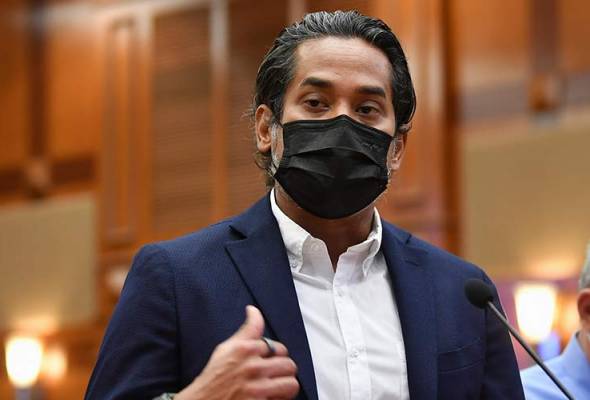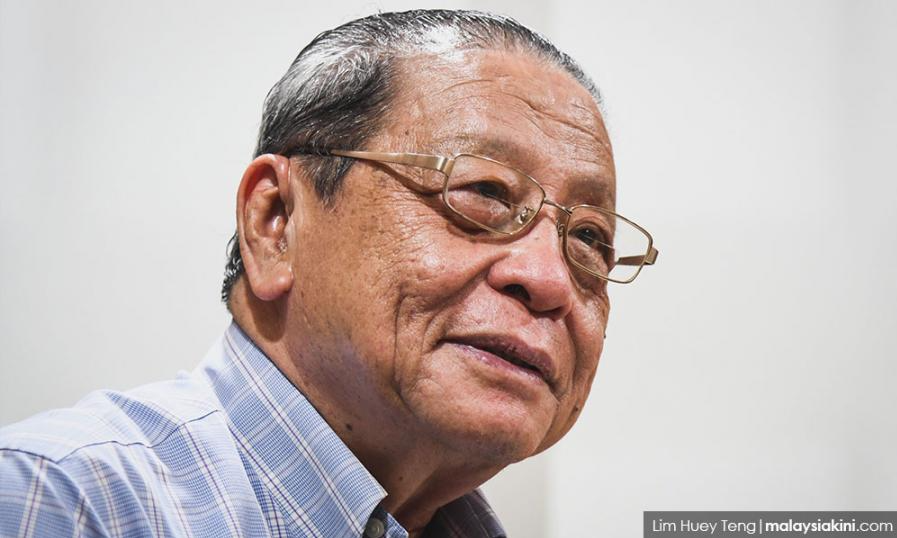
Where is the 100-day plan to ensure that the 65th National Day on August 31, 2022 Malaysia will not be under the cloud of Covid-19 pandemic?
In his maiden National Day address, the ninth Prime Minister, Ismail Sabri said he hoped the National Day celebrations this year will be the last under the cloud of the Covid-19 pandemic.
Two question arises: Firstly, where is the 100-day plan to ensure that the 65th National Day on August 31, 2022 will not be under the cloud of Covid-19 pandemic.
There are many aspects of the policy, strategy and approach in the 20-month war against Covid-19 pandemic that must be revamped and one is the communication policy.

I have asked the new Health Minister, Khairy Jamaluddin many questions about the government’s handling of the war against Covid-19 in the last few days, and I am still waiting for the answers – whether he could return Malaysia in the next 12 months to the 63rd National Day when the country had only double-digit Covid-19 cases and single-digit Covid-19 deaths, why there is an upsurge in Malaysia’s Covid-19 caseload although there is an increasing vaccination rate in the country and why Malaysia is losing out to Indonesia in the last two weeks in having more daily new Covid-19 cases, for instance 20,891 new Covid-19 cases in Malaysia yesterday as compared to Indonesia’s 10,534 cases.
Secondly, Ismail does not seem to realise that it is not within Malaysia’s capability to determine whether the 65th National Day will be marked under a cloud of the Covid-19 pandemic, because this depends on two factors: Malaysia’s performance in the war against the Covid-19 pandemic and the global performance.

Unfortunately, Malaysia’s performance in the war against the Covid-19 pandemic in the last one year had been a catastrophic one, with Malaysia emerging as one of the worst performing nations in the world as illustrated by the following four examples:
(i) Malaysia overtaking 66 countries in having the most cumulative total of Covid-19 cases to be ranked No. 23, when we were ranked No. 89 twelve months ago;
(ii) falling to the bottom of the Bloomberg’s monthly Covid Resilience Ranking of 53 economies of more than US$200 billion;
(iii) beating all ASEAN nations in both “total confirmed cases per million population” and “new daily cases per million population” on the “Our World in Data” website; and
(iv) Yesterday being the world’s No. 7th nation in daily new Covid-19 cases and No. 9 in daily new Covid-19 deaths.
On the 63rd National Day 12 months ago, we had a cumulative total of 9,340 Covid-19 cases and 127 Covid-19 deaths.
On our 64th National Day yesterday, we had 1,746,254 million Covid-19 cases and 16,664 Covid-19 deaths – a phenomenal increase of 187 times for Covid-19 cases and another phenomenal increase of 131 times for Covid-19 deaths.
At the pace of 187 times’ increase of Covid-19 cases and 131 times’ increase of Covid-19 deaths, by the 65th National Day of August 31, 2022 in the next 12 months, we will have 327 million Covid-19 cases and 2.2 million Covid-19 deaths.
We would have overshadowed the United States, the present world’s top country world with over 40 million Covid-19 cases and 657,520 Caovid-19 deaths.
But 327 million Covid-19 cases in Malaysia is an impossibility as it is 10 times Malaysia’s present population of 32 million – but it presents a grim picture of the magnitude of the disastrous trajectory of the mishandling of the Covid-19 pandemic in Malaysia in the last 12 months – especially the image of one Covid-19 death out of every 16 people in Malaysia.
The global performance of the war against Covid-19 pandemic is beyond Malaysia’s ability to influence.

A top epidemiologist, Larry Brilliant (pictured above), who was part of the World Health Organisation (WHO) team to helped eradicate smallpox, does not think that the Covid-19 pandemic is coming to an end soon.
Although 39.5% of the world population has received at least one dose of a Covid-19 vaccine, only 1.7 per cent of people in low-income countries have received at least one dose.
At the current pace of administering 41 million doses of vaccine a day, the goal of high levels of global immunity remains a long way off.
The war against the Covid-19 pandemic cannot be won by an individual or a nation going solo, as nobody is safe until all are safe.
This global vaccination progress is now under threat with new coronavirus strains, led by the highly transmissible Delta variant, which is estimated to be a thousand times more potent – and this week there are reports of a new Covid variant in South Africa which was first detected in May but has since spread to seven other countries spanning Africa, Europe, Asia and Oceania raising questions whether it could be super-spreader.
This has developed into a life-and-death contest between vaccine and virus in the world..
Although Malaysia cannot influence the global aspects of the Covid-19 pandemic, we must not become one of the world’s worst-performing nations in the war against the Covid-19 pandemic – and this bring us back to the 100-day plan to gain control of the war against the Covid-19 pandemic in Malaysia.
Lim Kit Siang
MP for Iskandar Puteri



